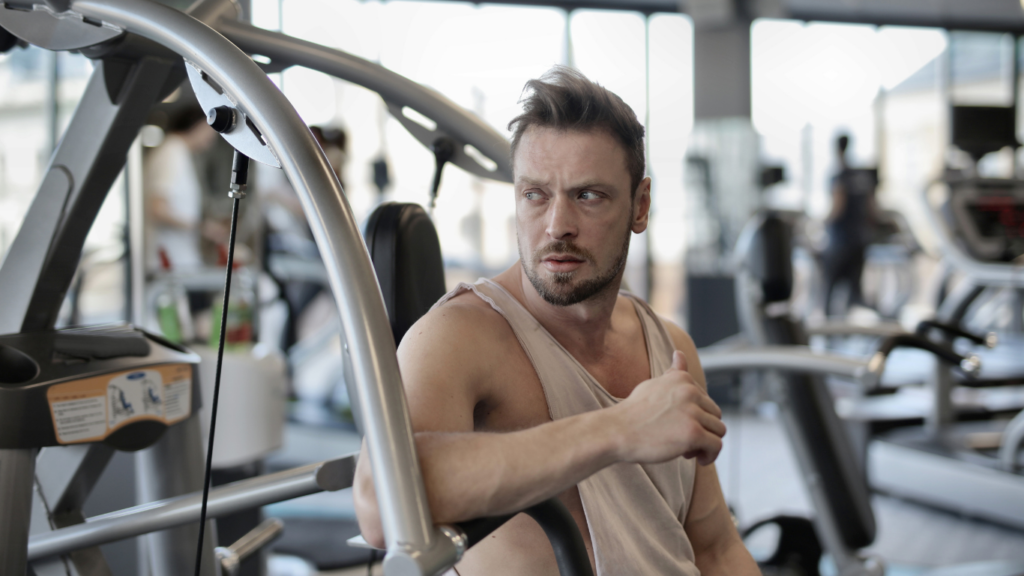Embarking on a fitness journey is exhilarating, filled with goals, challenges, and triumphs. Amidst the sweat and dedication, it’s easy to overlook a crucial component of progress – rest and recovery.
In my experience, prioritizing rest has been a game-changer in achieving fitness milestones. Understanding the significance of allowing our bodies to recuperate is key to sustainable progress. It’s not just about pushing harder; it’s about allowing time for muscles to repair and grow stronger.
By incorporating proper rest and recovery strategies, I’ve witnessed not only physical improvements but also mental clarity and overall well-being.
Join me as we delve into the essential role that rest and recovery play in optimizing your fitness journey. Let’s explore practical tips and insights to help you strike the right balance between pushing your limits and giving your body the restoration it deserves.
Exploring the Significance of Rest and Recovery
Delving into the significance of rest and recovery in my fitness journey has been eye-opening. I’ve realized that giving my body adequate time to recuperate is just as crucial as pushing it during workouts.
Without proper rest, the body doesn’t have the chance to repair and strengthen the muscles worked during exercise. In my experience, rest days are where the real progress happens. It’s during these periods of recovery that muscles rebuild and grow stronger, leading to enhanced performance in subsequent workouts.
Moreover, adequate rest plays a central role in preventing injuries caused by overtraining, allowing me to sustain my fitness journey in the long run. By incorporating structured recovery phases into my routine, I’ve noticed a remarkable improvement in my overall well-being.
Not only do I feel more energized and focused, but I also recover faster between workout sessions. This improved recovery time has enabled me to maintain consistency in my training, ultimately leading to better results in terms of strength gains and endurance.
Understanding the importance of rest and recovery has been a game-changer in my fitness regimen. It’s not just about pushing harder; it’s about finding the right balance between challenging workouts and adequate rest to ensure optimal performance and progress.
I’ve come to appreciate that rest is not a sign of weakness but a strategic component that maximizes the benefits of my training efforts.
Understanding the Impact of Physical Rest on Performance
Physical rest plays a pivotal role in maximizing performance and achieving fitness goals. Without adequate rest, the body’s ability to perform at its peak is compromised, impacting various aspects of physical performance.
Effects of Insufficient Rest on Physical Performance
Ignoring the need for proper rest can have detrimental effects on physical performance, leading to decreased strength, endurance, and overall fitness levels. When the body is deprived of adequate rest, it fails to recover fully, resulting in persistent fatigue, reduced motivation, and increased risk of injury during exercise
. Ultimately, inadequate rest impairs muscle repair and growth, hindering progress in training and limiting the potential for performance improvements.
Recognizing the Role of Recovery in Muscle Growth and Repair
Reflecting on my fitness journey, I’ve come to understand the significant impact that prioritizing recovery has on muscle growth and repair. Ignoring the essential role of recovery can impede progress and hinder the overall effectiveness of training efforts.
In my experience, adequate rest plays a crucial part in allowing muscles to repair and grow stronger after intense workouts. This repair process is fundamental for increasing muscle mass and improving overall strength.
By ensuring that I incorporate proper recovery periods into my training routine, I’ve been able to witness notable advancements in my muscle development and physical performance. Moreover, by recognizing the necessity of recovery in muscle repair, I’ve been able to prevent injuries caused by overtraining.
Overworking muscles without allowing them sufficient time to recover can lead to strains, tears, and other injuries that can set back progress and disrupt training consistency. By structuring my recovery phases effectively, I’ve observed improvements in my energy levels, quicker recovery times between workouts, and enhanced endurance during training sessions.
These benefits have translated into better strength gains and increased overall performance, underscoring the critical role that recovery plays in achieving fitness goals. Understanding the correlation between rest and muscle growth has been instrumental in maximizing my performance and optimizing my training outcomes.
Neglecting the need for proper rest can result in decreased strength, diminished endurance, and overall reduced fitness levels, compromising the effectiveness of workouts. By acknowledging the significance of incorporating adequate recovery into my fitness regimen, I’ve been able to maintain motivation, sustain energy levels, and minimize the risk of burnout.
Prioritizing recovery has not only enhanced my muscle repair and growth but has also contributed to a more sustainable and successful training journey.
Implementing Effective Rest and Recovery Strategies
Incorporating proper rest and recovery strategies into your fitness routine is vital for maximizing performance gains and ensuring long-term progress. By implementing effective strategies, I’ve achieved significant improvements in my fitness journey, boosting muscle growth, preventing injuries, and enhancing overall well-being.
- Listen to Your Body: Pay close attention to your body’s signals to determine when it needs rest. Pushing through fatigue can lead to burnout and increased risk of injury. It’s crucial to rest when feeling overly fatigued or experiencing persistent muscle soreness.
- Prioritize Sleep: Quality sleep is essential for optimal recovery. Aim for 7-9 hours of uninterrupted sleep each night to allow your body to repair and recharge. Adequate rest plays a crucial role in muscle recovery, cognitive function, and overall performance.
- Active Recovery: Incorporate light activities like gentle stretching, yoga, or leisurely walks on rest days to promote blood flow and alleviate muscle tension. Active recovery helps reduce muscle soreness, improve flexibility, and enhance recovery between intense workout sessions.
- Hydrate and Nourish: Proper hydration and nutrition are key components of effective recovery. Stay hydrated throughout the day and fuel your body with nutrient-dense foods to support muscle repair and replenish energy stores. Consider incorporating post-workout meals rich in protein and carbohydrates to aid in recovery.
- Utilize Recovery Tools: Explore various recovery tools such as foam rollers, massage balls, and percussion massagers to target specific muscle groups and alleviate tension. These tools can help improve circulation, reduce muscle tightness, and promote faster recovery following intense workouts.
- Implement Rest Days: Schedule regular rest days into your training program to allow your body sufficient time to recover and adapt to the demands of exercise. Rest days are essential for preventing overtraining, reducing the risk of burnout, and maintaining long-term workout consistency.
By adopting these effective rest and recovery strategies into your fitness regimen, you can optimize performance, accelerate muscle growth, and minimize the risk of injuries. Prioritizing rest is not a sign of weakness but a strategic approach to achieving sustainable fitness results and reaching your training goals.


 Margie Barron brought her expertise in health communication to the development of Toe Back Fitness, ensuring that the platform delivers practical, easy-to-understand fitness advice. With a focus on making wellness accessible to everyone, Barron curated content that promotes healthy habits and sustainable routines. Her attention to detail and passion for empowering users through informative articles have been instrumental in shaping the platform’s voice and relevance.
Margie Barron brought her expertise in health communication to the development of Toe Back Fitness, ensuring that the platform delivers practical, easy-to-understand fitness advice. With a focus on making wellness accessible to everyone, Barron curated content that promotes healthy habits and sustainable routines. Her attention to detail and passion for empowering users through informative articles have been instrumental in shaping the platform’s voice and relevance.